Research
Dr. Buxbaum is the Director of the Seaver Autism Center for Research and Treatment and his laboratory works closely with all of the other laboratories and focus groups within the Center. The Buxbaum lab studies human psychiatric and neurological diseases using methods of epidemiology, genetics, genomics, molecular and cell biology, and animal models. Currently, we are focusing primarily on autism spectrum disorder (ASD), obsessive-compulsive disorder, schizophrenia, and associated neuropsychiatric disorders.
The Seaver Center is a fully integrated translational research center dedicated to discovering the biological causes of autism and comorbid conditions and developing breakthrough treatments. The Center includes teams focused on (i) epidemiology, (ii) preclinical research, (iii) clinical research, and (iv) drug discovery and development, all supported by an (v) administrative team. There are several unifying themes across the Center, all of which include members of the Buxbaum lab. These include a focus on 4 rare genetic disorders with very high risk for autism, looking at the disorders from epidemiological, preclinical, clinical and drug discovery perspectives, and the integration of large epidemiological cohorts into gene discovery and genotype-phenotype correlations.
The Buxbaum lab uses computational (data analytics) and experimental approaches to identify and functionally characterize genes for neuropsychiatric disorders. These include epidemiological, genetic, genomic, in vitro (including stem cell models), and in vivo approaches. The lab is affiliated to the Department of Psychiatry, Mindich Child Health and Development Institute the Black Family Stem Cell Institute, and the Friedman Brain Institute.
Contact Us
Buxbaum Laboratory
1468 Madison Avenue
Annenberg Building
Floor 22, Room 38
New York, NY 10029
Office: 212-241-0200
joseph.buxbaum@mssm.edu
Current Projects
Genetic Analyses - Autism Sequencing Consortium
For over 30 years, studies of families and twins have indicated that genetic factors account for a large portion of ASD risk. Our research efforts aim to uncover the genetic variation in ASD, and thus identify novel genes and mutations conferring risk for ASD. Since the statistical power for gene discovery increases with the sample size, we collaborate with other research teams to collect large ASD cohorts.
We are co-leaders of the Autism Sequencing Consortium (ASC), a collaboration of over 50 international research groups founded in 2010 with the immediate goal of analyzing the exomes of over 60,000 individuals. As part of the ASC, we apply cutting-edge genomics technologies, including whole-exome sequencing, to large populations comprising ASD families, ASD cases and healthy controls. We investigate genetic variation at all scales, including single-nucleotide variation (SNV), small deletions and duplication (indels), and copy number variants (CNV). Data emerging from our research are being intersected with findings from genetic studies on schizophrenia, epilepsy, and intellectual disability, to better understand the bases of the ASD comorbidities.
As part of the translational approach that characterizes our research, the genetic discoveries are used to create increasingly sophisticated pre-clinical cell and animal models for basic, translational, and clinical studies, as well as drug discovery and development (see below). Four genes conferring very high risk for ASD, specifically, ADNP, DDX3X, FOXP1, and SHANK3 are studied in the lab and across the Center. Also, we work closely with other teams at the Seaver Autism Center to use the genetic findings to enhance patient care. Genetic discoveries can help with accurate diagnosis, and can provide information for the prediction of the clinical course of the disease and opportunities for genetic counseling. Genetic studies will also constitute the first step of pioneering personalized clinical care by integrating personal genomics data with specific therapeutics.
Epidemiological studies in autism and OCD
Multiple groups within the Seaver Center make use of national registers to identify causes of risk for psychiatric disorders. The Buxbaum lab, in collaboration with Sven Sandin, focuses primarily on Swedish health registers and has used such registers to identify risk factors for autism and for OCD. In addition, the Buxbaum lab uses the register information to collect DNA samples from affected individuals, using an epidemiological framework. All samples are genotyped and sequenced and used for gene discovery (for example, in collaboration with the ASC, see above) and the associated medical information is used for genotype-phenotype correlations. The autism study is called PAGES, which is an acronym for ‘Population-Based Autism Genetics and Environment Study.’ The OCD study is led by Dorothy Grice and is called EGOS, for ‘Epidemiology and Genetics of Obsessive-compulsive disorder and chronic tic disorders in Sweden’.
Induced pluripotent stem cells in autism
Because of their pluripotency and ability to differentiate into neural cell types, induced pluripotent stem cells (iPSCs) derived from patients represent an experimental system of choice for the study of complex neuropsychiatric disorders. To determine the impact of ADNP, DDX3X, FOXP1, and SHANK3 mutations on neuronal mechanisms and pathways, we are generating iPSCs from blood samples collected from patients and their siblings (as a control) and are reprogramming them into neural progenitor cells (NPCs) and differentiating them into mature neurons. These cells can be used to mimic the pathology of the disorder and to thoroughly understand the physiology of neuronal populations that would otherwise not be accessible for investigation. Similarly, we are collecting blood samples from patients with idiopathic autism. The work on iPSC, NPC and induced neurons for these 4 rare disorders is being carried out in close collaboration with Nan Yang and Ana Kostic.
Another strategy used in our laboratory consists of creating and phenotyping a series of isogenic lines using gene-targeting methods in healthy control cells. Matt Lalli, an Instructor in the group, has selected over 100 genes associated with ASD from our genetic analyses to be investigated.
Both patient-derived cells and engineered cells are tested through a battery of high-throughput phenotypic and molecular assays at both the progenitor and mature neuron stage designed to assess genome wide expression changes and a range of phenotypes including cell replication, survival, migration, connectivity, electrophysiological properties, dendritic arborization and synaptic structure. This work will provide insight into the neuronal pathways disrupted in ASD and, ultimately, those cell lines will provide a unique platform for drug discovery, allowing high-throughput screening of large compounds libraries for their effect on modulating the human neural phenotype of ASD.
Induced pluripotent stem cells in schizophrenia
In collaboration with Kristen Brennand and the New York Stem Cell Foundation, we are using robotic methods to reprogram and differentiate over 100 fibroblast samples, half from individuals with schizophrenia and half from control individuals. Schizophrenia is a chronic, severe and disabling brain disorder that affects an estimated 1 in 100 persons. Though its key symptoms generally appear late in adolescence, schizophrenia is a neurodevelopmental condition with a strong genetic component and heritability estimated to be as high as 80%. While there have been improvements in the understanding of the biological systems implicated in the pathogenesis and pathophysiology of schizophrenia, progress has been slow and limited both by the difficulty in obtaining relevant tissues from patients and the inadequacy of animal models to deal with the level of genetic complexity involved in this disease. To date, most of the molecular and cellular studies of schizophrenia have been performed on postmortem tissues or on genetically defined mouse models that do not fully recapitulate the human genetic risk or neural phenotype. The rapid advances in iPSC methodology provide new opportunities to overcome some of the obstacles inherent to the modeling of neurodevelopmental diseases.
We are applying revolutionary robotic methods to generate pluripotent stem cells from a large cohort of patients and carefully matched controls. We will then use this sample, as well as two existing samples of iPSCs with child onset schizophrenia and/ or known, rare, highly penetrant genetic lesions, to generate both excitatory (glutamatergic) and inhibitory (GABAergic) neurons. This will create the first large scale, highly standardized library of iPSC and neurons derived from patients with schizophrenia. Subsequently, we are performing gene expression profiling on the schizophrenia and control neurons and using innovative systems biological analyses to identify dysregulated pathways in schizophrenia and key molecular drivers that underlie these pathway changes. These key molecular drivers represent potentially high-impact targets for drug development. Altogether, the completion of the aims will provide new insight into the neuronal pathways disrupted in schizophrenia, and identify potential drug targets.
CommonMind Consortium
Our work in schizophrenia is enhanced by our collaboration with the CommonMind Consortium. The CommonMind Consortium is a public-private partnership bringing together area knowledge, large scale and well-curated brain sample collections, data management and analysis expertise. The consortium has a goal to generate and analyze large-scale genomic data from human subjects with neuropsychiatric disease and to make these data and the associated analytical results broadly available to qualified investigators. The consortium is generating multiple data modalities (e.g. RNA and DNA sequencing, genotyping, epigenetics) across multiple brain regions from individuals with schizophrenia, bipolar disorder, and unaffected controls on a collection of more than 1,000 individuals. Buxbaum is a Founding Member of the Consortium and his lab carries out innovative analyses of the data, including a recent study on RNA editing in brain-expressed transcripts. In this study, Michael Breen, now an Assistant Professor at the Seaver Center demonstrated that editing QTLs account for some of the genetic findings made in schizophrenia.
Animal models
The Buxbaum lab has generated and characterized over a dozen genetically modified rodent models for autism, schizophrenia and other psychiatric disorders. Many of the ongoing studies focus on the four genes that are noted above, specifically, ADNP, DDX3X, FOXP1, and SHANK3. The work on Shank3 is being taken forward by Hala Harony-Nicolas while the work on DDX3X is being taken forward by Silvia De Rubeis, both Assistant Professors in the Seaver Center. The Buxbaum and Kostic labs are collaborating on creating or ascertaining mouse models with disruptions in ADNP or FOXP1 and characterizing all four models for translatable biomarkers, such as chronic EEG and activity monitoring, that might be useful in as checkpoints in drug development.
Clinical studies
Individuals with mutations in ADNP, DDX3X, FOXP1, or SHANK3 are being brought into the the Seaver Autism Center for deep, prospective phenotyping by the clinical team. The Buxbaum lab collaborates on these studies, collecting and analyzing biospecimens, including cells for iPSC and characterizing additional molecular markers. All the faculty working on the relevant animal models compare phenotypes with the human studies and search for translatable biomarkers, as noted above. The Buxbaum lab is very active in the integrative looks at these four genes, from biochemistry, to iPSC, to animal models, to clinical findings. Several of these integrative analyses have led to new clinical trials with these rare disorders, including testing IGF-1 and oxytocin in individuals with SHANK3 mutations.
Team
Principal Investigator
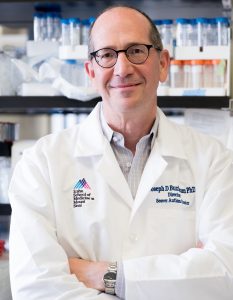 Joseph D. Buxbaum, PhD is a Professor of Psychiatry, Genetics and Genomic Sciences, and Neuroscience, and serves as the Director of the Seaver Autism Center for Research and Treatment, and is Vice Chair for Research and Mentoring of the Department of Psychiatry. Dr. Buxbaum is a renowned molecular neuroscientist whose research aims to understand the molecular and genetic basis of autism spectrum disorder and associated neurodevelopmental disorders, with the goal of developing novel therapeutics. Dr. Buxbaum is a founder and communicating Principal Investigator of the Autism Sequencing Consortium, currently analyzing whole exome sequencing from 60,000 individuals to identify ASD genes. In addition, his lab has numerous human stem cell lines ongoing and has characterized more than a dozen rodent models for ASD and associated disorders. Dr. Buxbaum received his BSc in Math and Biology from Touro College, and his MSc and PhD in Neurobiology from the Weizmann Institute of Science in Israel. Dr. Buxbaum completed a Postdoctoral Fellowship in Molecular and Cellular Neuroscience at the Rockefeller University. Dr. Buxbaum was elected to the National Academy of Medicine in 2015 and was elected a fellow of the International Society for Autism Research in 2019. Dr. Buxbaum is the author of more than 300 publications, and he is co-editor-in-chief of the journal Molecular Autism.
Joseph D. Buxbaum, PhD is a Professor of Psychiatry, Genetics and Genomic Sciences, and Neuroscience, and serves as the Director of the Seaver Autism Center for Research and Treatment, and is Vice Chair for Research and Mentoring of the Department of Psychiatry. Dr. Buxbaum is a renowned molecular neuroscientist whose research aims to understand the molecular and genetic basis of autism spectrum disorder and associated neurodevelopmental disorders, with the goal of developing novel therapeutics. Dr. Buxbaum is a founder and communicating Principal Investigator of the Autism Sequencing Consortium, currently analyzing whole exome sequencing from 60,000 individuals to identify ASD genes. In addition, his lab has numerous human stem cell lines ongoing and has characterized more than a dozen rodent models for ASD and associated disorders. Dr. Buxbaum received his BSc in Math and Biology from Touro College, and his MSc and PhD in Neurobiology from the Weizmann Institute of Science in Israel. Dr. Buxbaum completed a Postdoctoral Fellowship in Molecular and Cellular Neuroscience at the Rockefeller University. Dr. Buxbaum was elected to the National Academy of Medicine in 2015 and was elected a fellow of the International Society for Autism Research in 2019. Dr. Buxbaum is the author of more than 300 publications, and he is co-editor-in-chief of the journal Molecular Autism.

Erina Hara, PhD
Project Manager III
erina.hara@mssm.edu
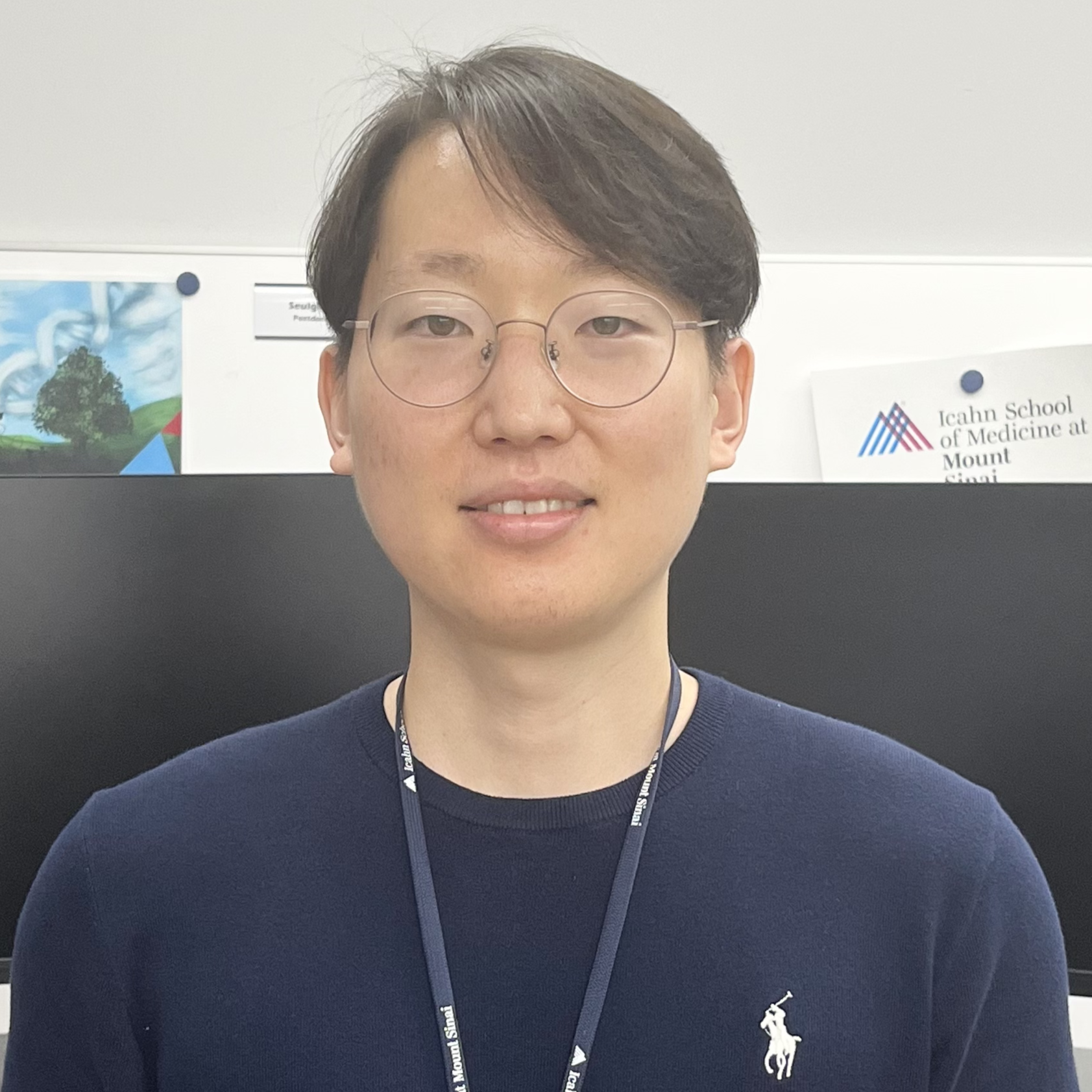
Seulgi Jung, PhD
Postdoctoral Fellow
seulgi.jung@mssm.edu
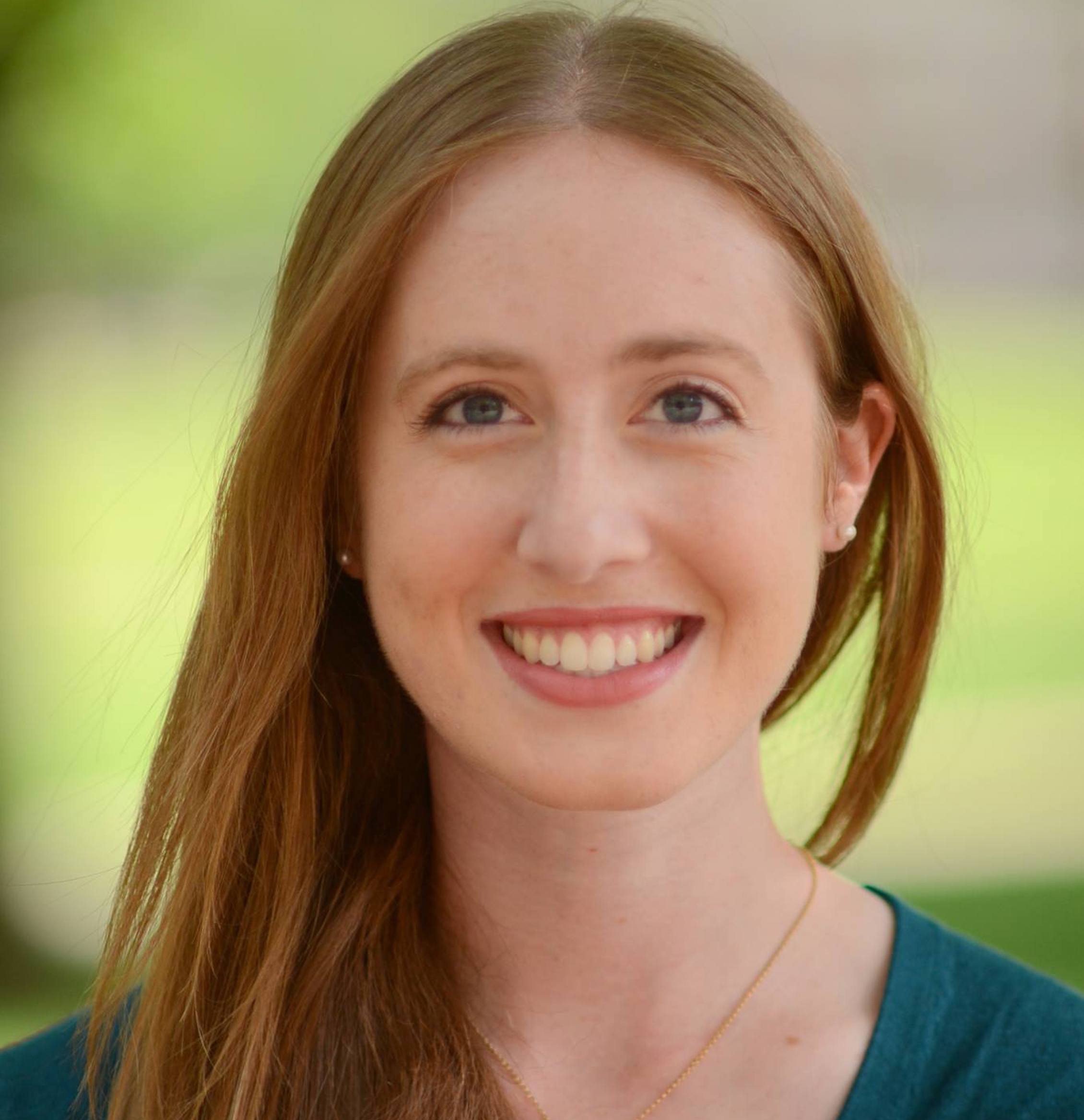
Laura Sloofman, MS
Bioinformatician III
laura.sloofman@mssm.edu
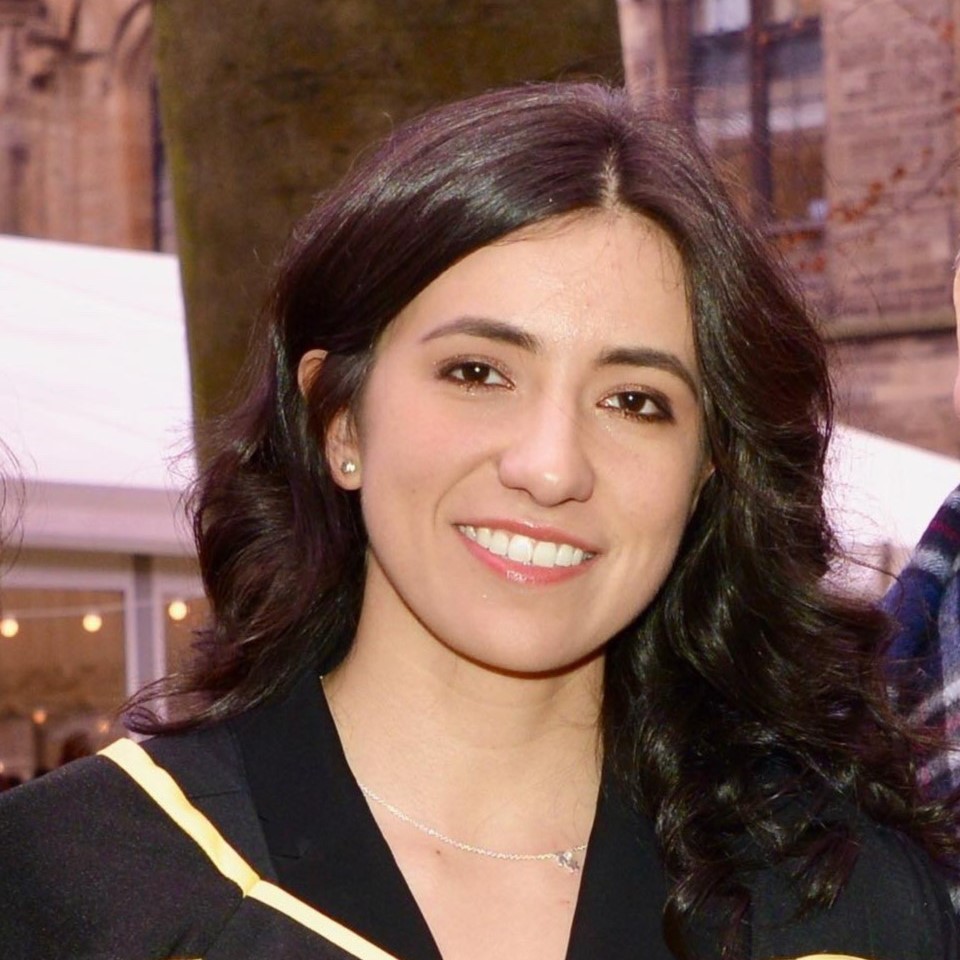
Marina Natividad Avila, MSc
Bioinformatician
marina.natividadavila@mssm.edu
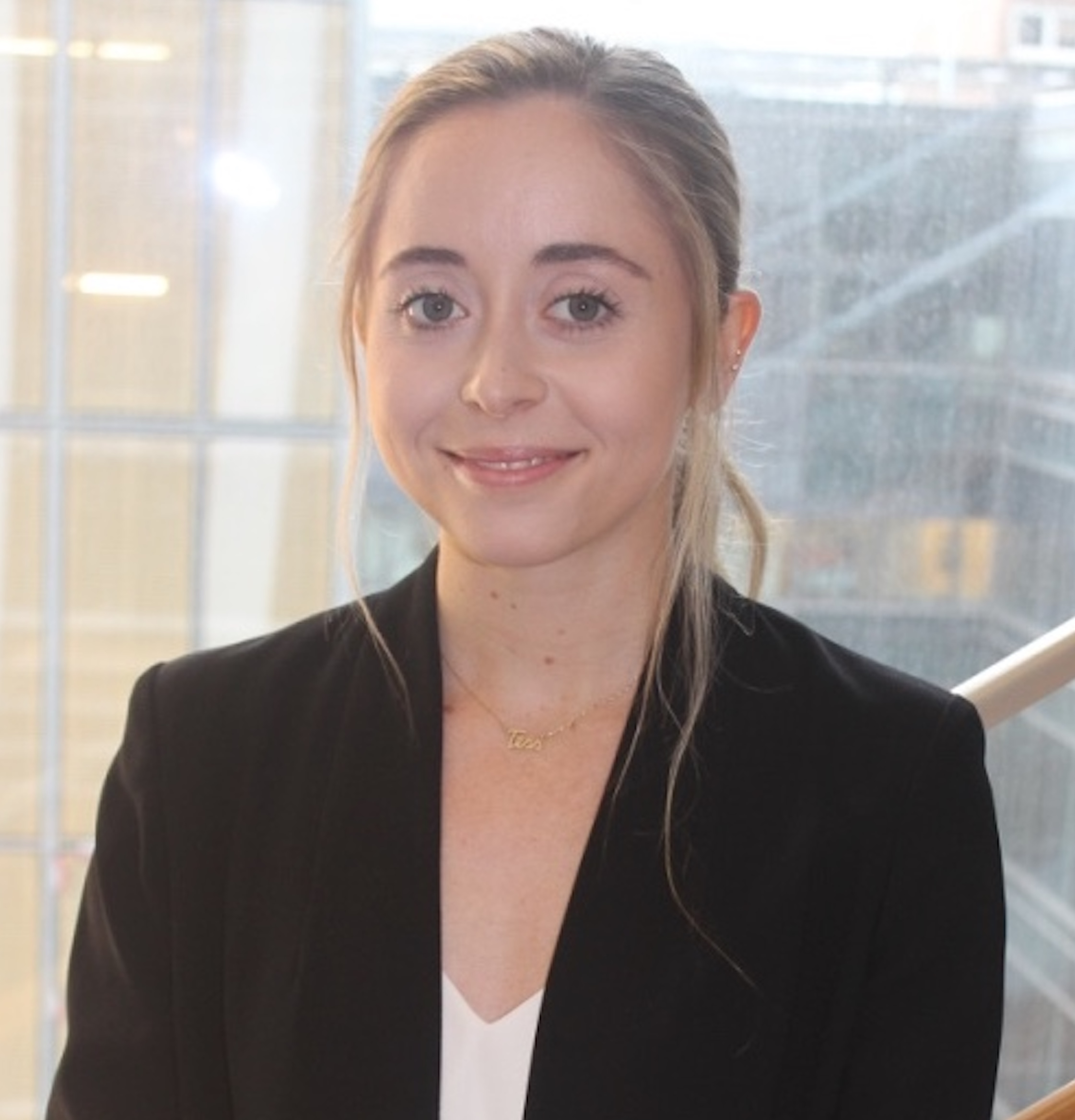
Tess Levy, CGC
Assistant Professor
tess.levy@mssm.edu
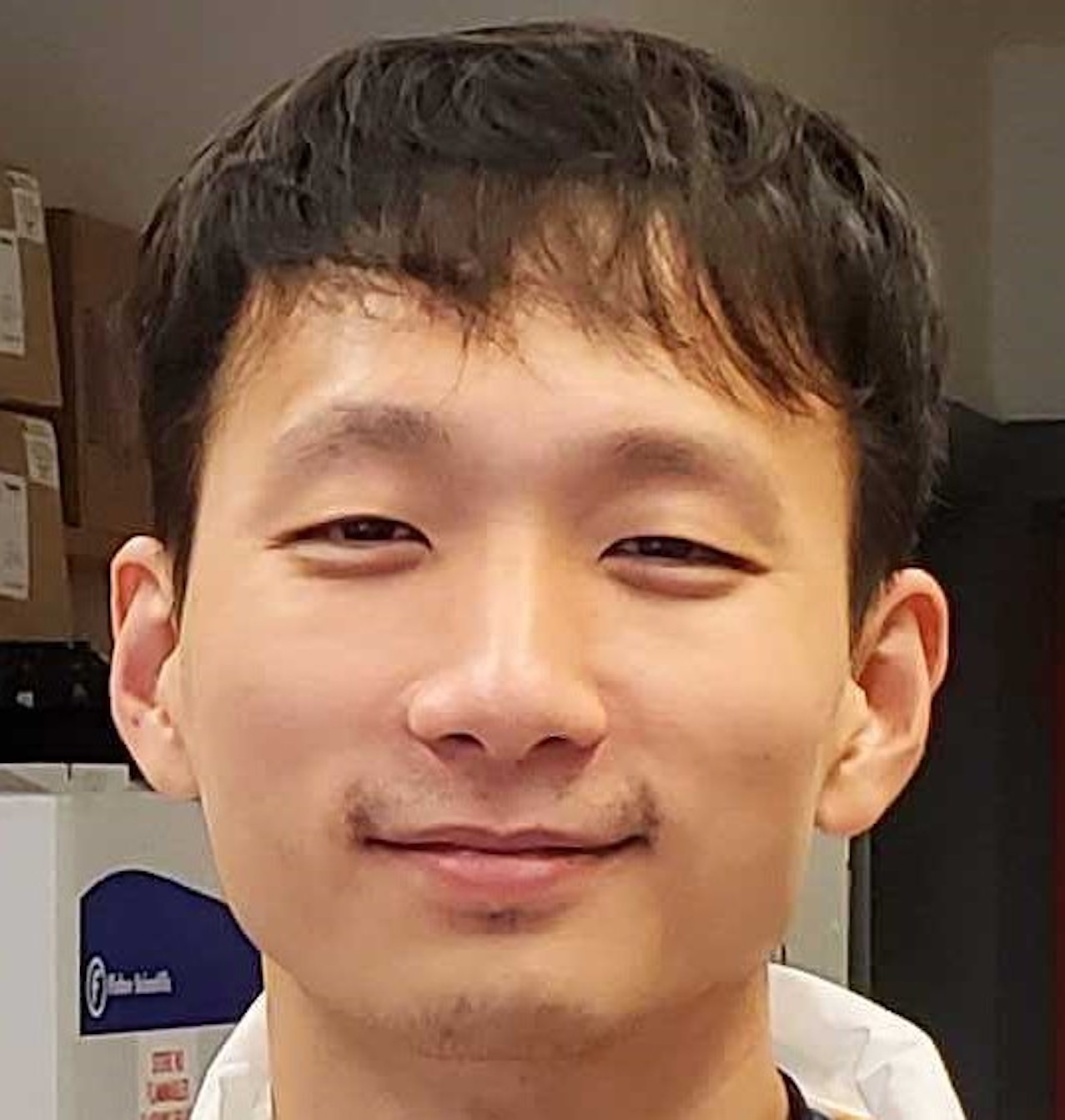
Michael Jun
Associate Researcher
michael.jun@mssm.edu

Slayton Underwood, MPH
Assistant Director of Data Management
slayton.underwood@mssm.edu
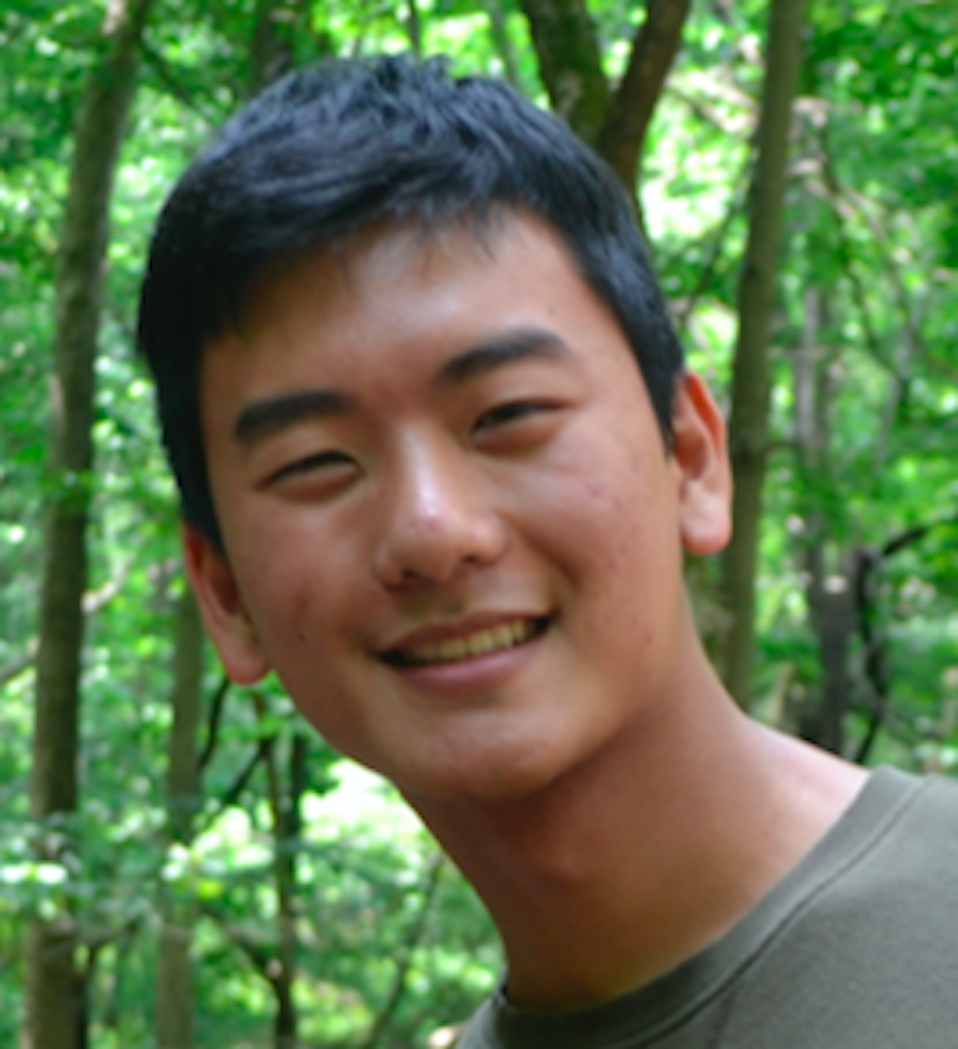
David Park
Associate Researcher
david.park@mssm.edu
Alumni
Yuji Kajiwara, PhD
Nagahide Takahashi, PhD
Takeshi Sakurai, PhD
Silvia De Rubeis, PhD
Hala Harony-Nicolas, PhD
Michael Breen, PhD
Behrang Mahjani, PhD
Featured Publications
Satterstrom FK, Kosmicki JA, Wang J…Roeder K, Daly MJ, Buxbaum JD: Large-Scale Exome Sequencing Study Implicates Both Developmental and Functional Changes in the Neurobiology of Autism. Cell 2020 Feb 6;180(3):568-584.e23. doi: 10.1016/j.cell.2019.12.036. Epub 2020 Jan 23.
Breen MS, Dobbyn A, Li Q, Roussos P, Hoffman GE, Stahl E, Chess A, Sklar P, Li JB, Devlin B, Buxbaum JD; CommonMind Consortium: Global landscape and genetic regulation of RNA editing in cortical samples from individuals with schizophrenia. Nat Neurosci. 2019 Sep;22(9):1402-1412. doi: 10.1038/s41593-019-0463-7. Epub 2019 Aug 27. PMID: 31455887, PMCID: PMC6791127.
Xu D, Wang C, Kiryluk K, Buxbaum JD, Ionita-Laza I: Co-localization between Sequence Constraint and Epigenomic Information Improves Interpretation of Whole-Genome Sequencing Data. Am J Hum Genet. 2020 Apr 2;106(4):513-524. doi: 10.1016/j.ajhg.2020.03.003. PMID: 32243819
He Z, Xu B, Buxbaum J, Ionita-Laza I: A genome-wide scan statistic framework for whole-genome sequence data analysis. Nat Commun. 2019 Jul 9;10(1):3018. doi: 10.1038/s41467-019-11023-0. PMID: 31289270, PMCID: PMC6616627.
Doan RN, Lim ET, De Rubeis S, Betancur C, Cutler DJ, Chiocchetti AG, Overman LM, Soucy A, Goetze S; Autism Sequencing Consortium, Freitag CM, Daly MJ, Walsh CA, Buxbaum JD, Yu TW: Recessive gene disruptions in autism spectrum disorder. Nat Genet. 2019 Jun 17. doi: 10.1038/s41588-019-0433-8. [Epub ahead of print]. PMID: 31209396, PMCID: PMC6629034.
Breen MS, Browne A, Hoffman GE, Stathopoulos S, Brennand K, Buxbaum JD, Drapeau E: Transcriptional signatures of participant-derived neural progenitor cells and neurons implicate altered Wnt signaling in Phelan-McDermid syndrome and autism. Mol Autism. 2020 Jun 19;11(1):53. doi: 10.1186/s13229-020-00355-0. PMID: Free PMC article.
Breen MS, Garg P, Tang L… Buxbaum JD, Siper PM, De Rubeis S: Episignatures Stratifying Helsmoortel-Van Der Aa Syndrome Show Modest Correlation with Phenotype. Am J Hum Genet. 2020 Sep 3;107(3):555-563. doi: 10.1016/j.ajhg.2020.07.003. Epub 2020 Aug 5. PMID: 32758449; PMCID: PMC7477006.
News
Congratulations to Dr. Buxbaum for being selected as a 2019 Fellow of the International Society for Autism Research (INSAR).
Congratulations to Dr. Buxbaum for being named Honorary Skou Professor in Psychiatry and Genetics at Aarhus University.
Funding
NIH
NIMH
Beatrice & Samuel Seaver Foundation
Location
1468 Madison Avenue
Annenberg 22-38
212-241-0370
